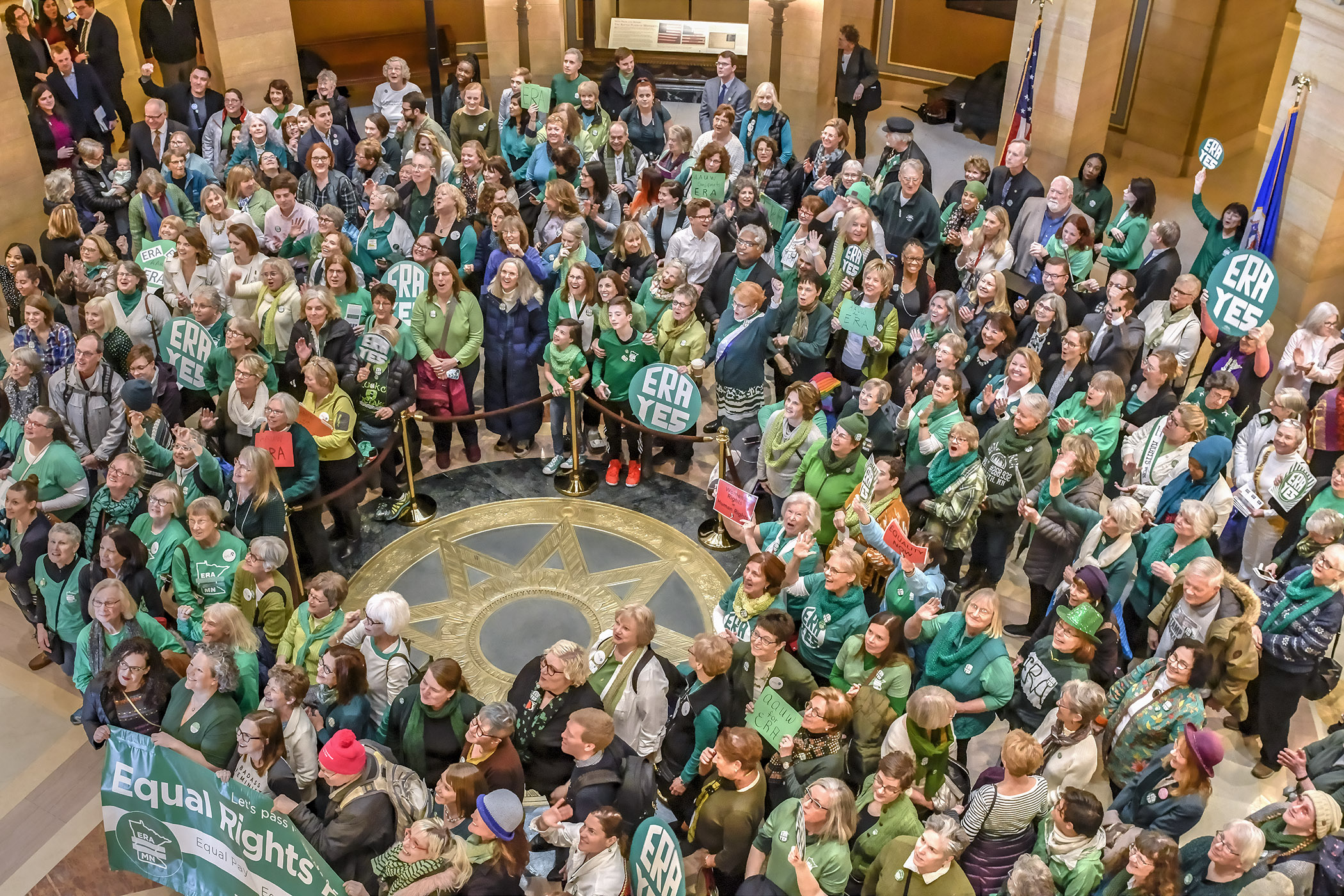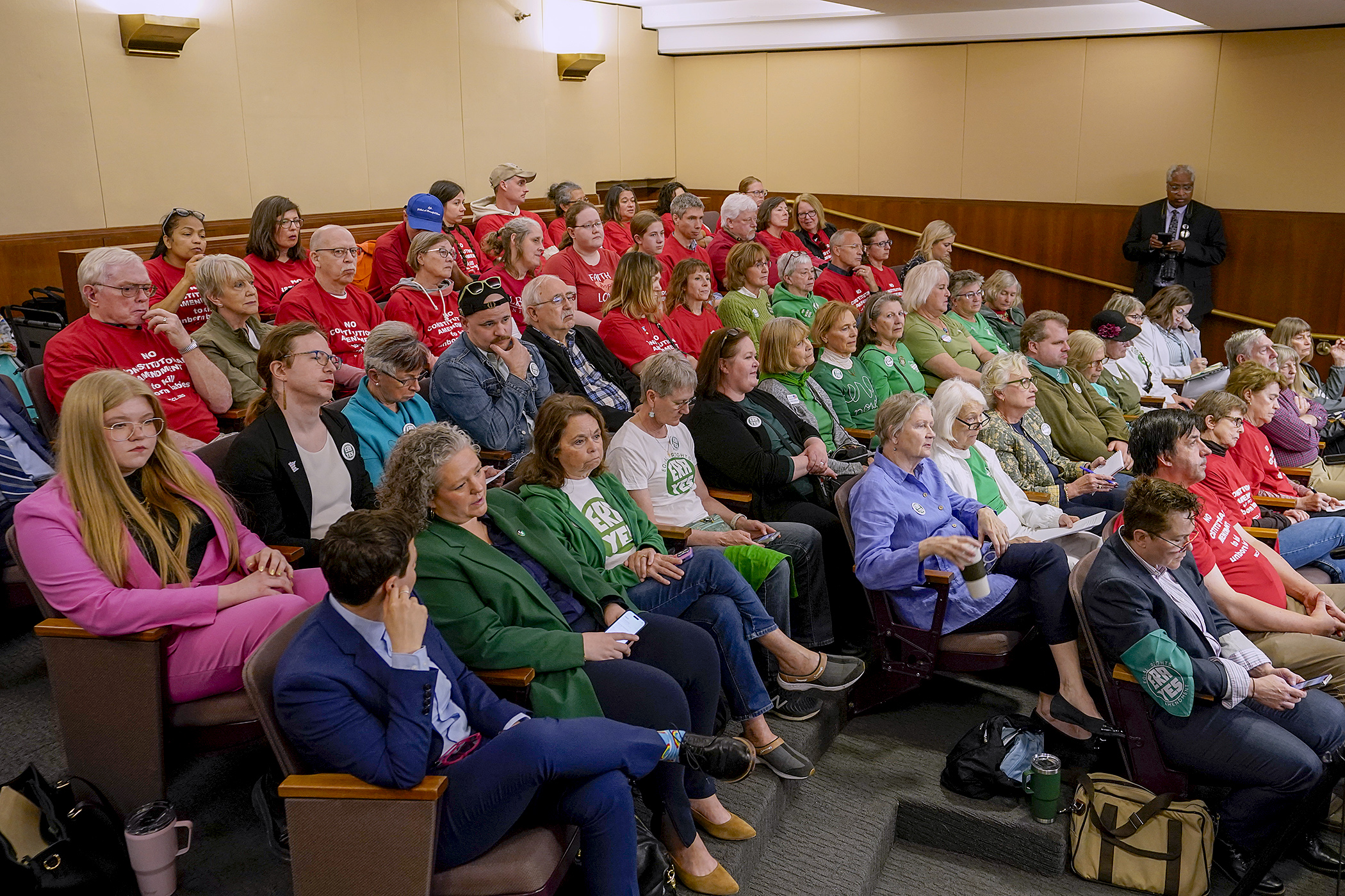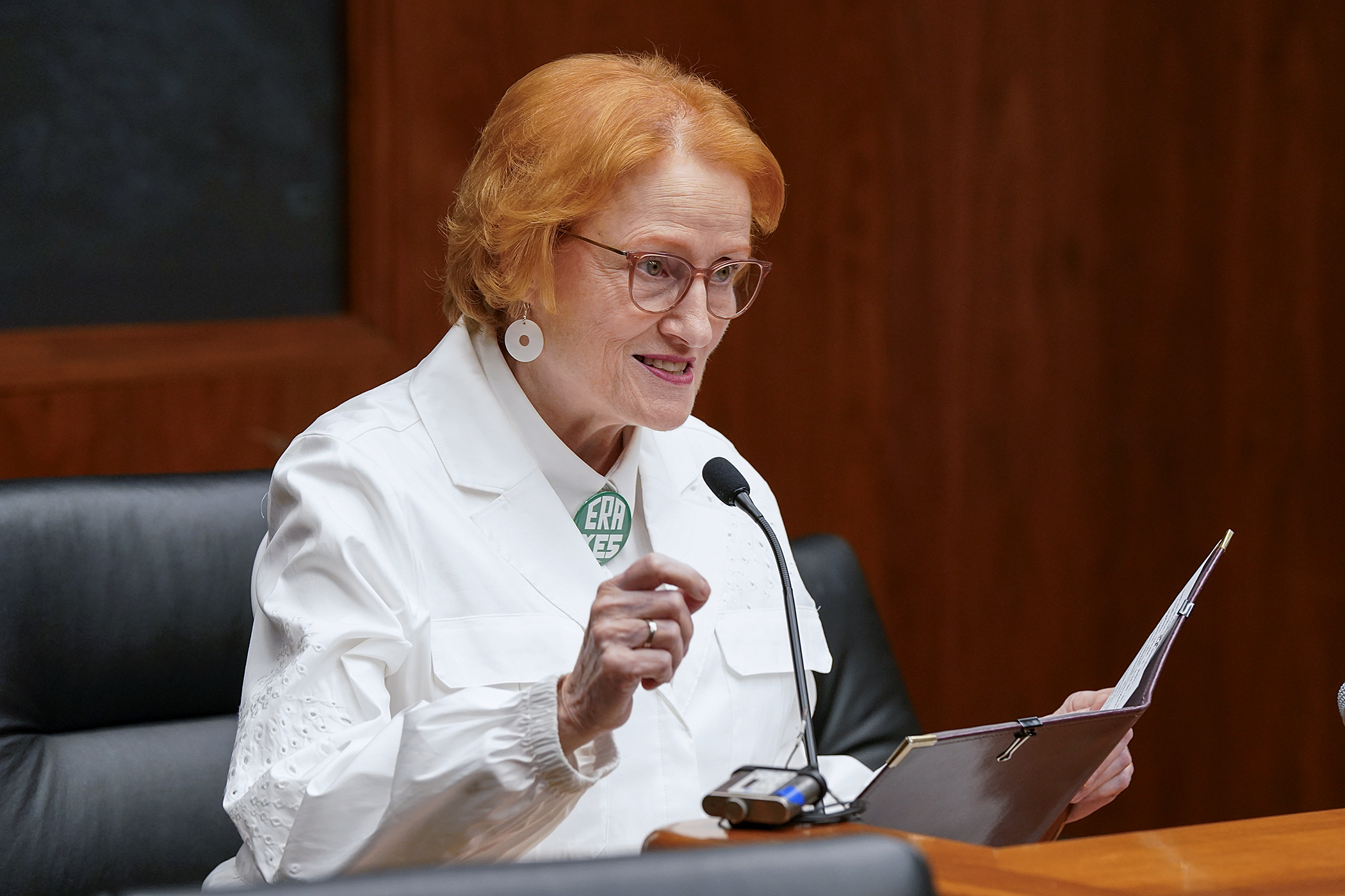House panel advances proposed Equal Rights Amendment ballot measure

Two weeks before this year’s legislative session must conclude, a committee vote on a potential Equal Rights Amendment could mean the language is before voters two years from now.
As amended, HF173/SF37* would ask voters at the 2026 general election if the state constitution should be amended to codify the right to equality.
The ballot question would be: "Shall the Minnesota Constitution be amended to say that all persons shall be guaranteed equal rights under the laws of this state, and shall not be discriminated against on account of race, color, national origin, ancestry, disability, or sex, including pregnancy, gender, and sexual orientation?”
Approved on a 9-5 party-line vote Monday by the House Rules and Legislative Administration Committee, the bill heads to the House Floor.
“We are a great state, a state that values equity for all,” said Rep. Kaohly Vang Her (DFL-St. Paul), who sponsors the bill with Sen. Mary Kunesh (DFL-New Brighton). “The reason for this ERA is to ensure that there is equality for all individuals.”
Megan Peterson is executive director of Gender Justice and a bill supporter.
“In recent years we’ve witnessed a disturbing trend of legislative attacks on the rights and freedoms of marginalized communities across the United States. … In recent Minnesota history, legislators have proposed legislation that would ban abortion, criminalize essential health care for transgender youth and criminally penalize transgender students from participating in school sports. Even small shifts in our political landscape can result in catastrophic attacks on our rights and freedoms.”
Getting this proposed amendment on the ballot would not require action by Gov. Tim Walz because, per the state constitution, if approved by the House and Senate the question will be before voters.
Abortion concerns
The Senate version, passed 43-23 in May 2023, includes creed and age as non-discriminatory, but lacks protections for abortion and gender-affirming care. Her said creed is undefined in state statute.
Cathy Blaeser, co-executive director of Minnesota Citizens Concerned for Life, acknowledges someone should not be discriminated against because of a pregnancy. “But the actual language which would go in our constitution would provide a fundamental right to make decisions about remaining pregnant with no protection for babies at any gestational age, including healthy, but inconvenient, viable babies.”
 Supporters and opponents of a proposed Equal Rights Amendment going before voters pack a State Office Building hearing room May 6 as testimony regarding the bill is heard before the House Rules and Legislative Administration Committee. (Photo by Michele Jokinen)
Supporters and opponents of a proposed Equal Rights Amendment going before voters pack a State Office Building hearing room May 6 as testimony regarding the bill is heard before the House Rules and Legislative Administration Committee. (Photo by Michele Jokinen)She said bill advocates want to “decimate” those who disagree with their agenda.
“This bill cloaks abortion up to birth under the guise of pregnancy, permanently enshrining unlimited abortion in our constitution and through trickery and deceit because they know they cannot win an honest discussion on this issue.”
Her said it’s not just about abortion.
“It is actually really about reproductive outcomes,” she said. “There are many reasons people may want to plan for their families and as we’ve seen in states across the country, case law is not strong enough protect their rights. Just as the Supreme Court overturned Roe v. Wade and we were told Roe v. Wade was as good as law, it was not. It was only as good as law until it was overturned. … We are seeing rights being limited across the country, whether it's someone's right to choose how they want to plan their families or somebody's right to be an individual for themselves and the process that they may want to go through to ensure that they get to have that right and live as they so choose.”
“I strongly support this constitutional amendment because it does protect health care, and it specially protects health care for people of all genders. Abortion is health care,” said Rep. Sydney Jordan (DFL-Mpls). “… There’s only one politician that should be making health choices for me, and that’s me. None of us should be making health care choices for other people.”
Undermining women’s equality?
Renee Carlson, general counsel for True North Legal, said the question “displaces and erases women” because sex, gender identity and gender expression are specifically referenced.
“This undermines women’s equality because any distinction based on sex will now get the highest level of judicial scrutiny making it impossible for many commonsense distinctions in the law that benefit women to survive. A person’s subjective sense of self, however it is expressed, will be an arbiter putting programs and opportunities that give women special treatment in legal jeopardy. … Laws that were enacted to protect them will now be used against them.”
 Betty Folliard, founder of ERA Minnesota, testifies before the House Rules and Legislative Administration Committee May 6 in support of the amended HF173/SF37*. (Photo by Michele Jokinen)
Betty Folliard, founder of ERA Minnesota, testifies before the House Rules and Legislative Administration Committee May 6 in support of the amended HF173/SF37*. (Photo by Michele Jokinen)Process questions
House Majority Leader Jamie Long (DFL-Mpls) said the rules committee that he chairs is the committee of jurisdiction for constitutional amendments, but that did not stop Republicans from noting the language has not been heard by committees with jurisdiction over certain aspects.
Her said the majority of the bill was approved by the state and local government committee in March 2023. “This bill, with the exception of a few language changes, has been heard for six years now at the state Legislature, so it has been vetted.”
“I’ve been on state government finance for 10 years and we have not heard this language in its current version. I have questions as to why that was skipped,” said Rep. Jim Nash (R-Waconia). He noted a constitutional amendment proposed by Long to, in part, remove limitations on when the Legislature can meet, was heard March 13 by the elections committee and April 4 by the state and local government committee.
“I understand this language has been worked on for a number of years, but if we have not heard this in the years 2023 and 2024 as we are seeing right now in other committees, I just have grave concerns over the lack of transparency to the public,” said House Minority Leader Lisa Demuth (R-Cold Spring).
Related Articles
Search Session Daily
Advanced Search OptionsPriority Dailies
Speaker Emerita Melissa Hortman, husband killed in attack
By HPIS Staff House Speaker Emerita Melissa Hortman (DFL-Brooklyn Park) and her husband, Mark, were fatally shot in their home early Saturday morning.
Gov. Tim Walz announced the news dur...
House Speaker Emerita Melissa Hortman (DFL-Brooklyn Park) and her husband, Mark, were fatally shot in their home early Saturday morning.
Gov. Tim Walz announced the news dur...
Lawmakers deliver budget bills to governor's desk in one-day special session
By Mike Cook About that talk of needing all 21 hours left in a legislative day to complete a special session?
House members were more than up to the challenge Monday. Beginning at 10 a.m...
About that talk of needing all 21 hours left in a legislative day to complete a special session?
House members were more than up to the challenge Monday. Beginning at 10 a.m...